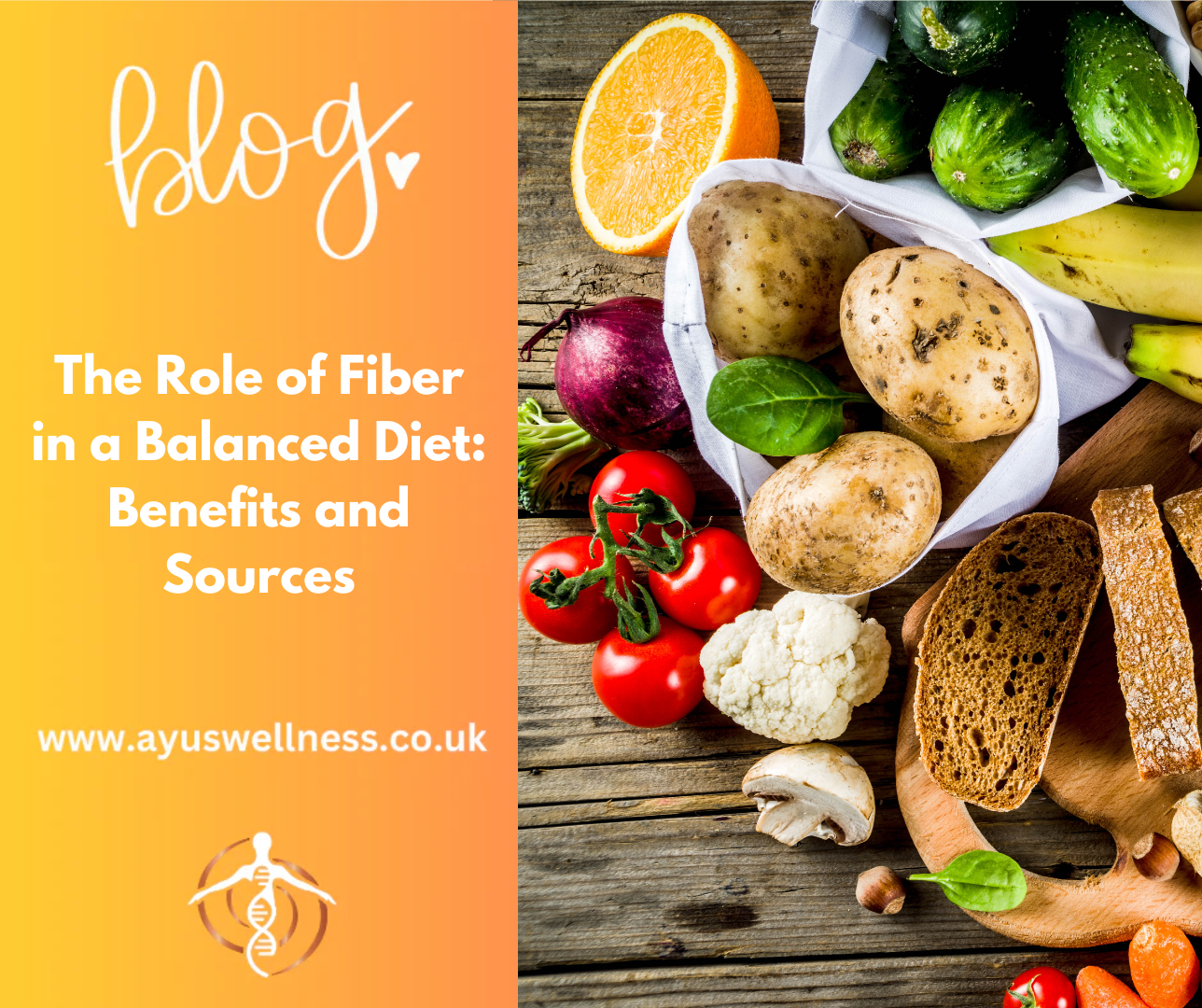
Fiber is an essential nutrient that plays a crucial role in maintaining overall health and well-being. In this blog post, we'll explore the importance of fiber in a balanced diet, its numerous health benefits, and the best sources to incorporate into your daily meals.
Introduction:
Fiber often takes a backseat in discussions about nutrition, but its importance cannot be overstated. From promoting digestive health to aiding weight management, fiber offers a wide range of benefits that are essential for maintaining a healthy lifestyle.
- Benefits of Fiber:
- Supports digestive health by promoting regular bowel movements and preventing constipation.
- Helps control blood sugar levels and may reduce the risk of developing type 2 diabetes.
- Aids in weight management by promoting feelings of fullness and reducing calorie intake.
- Lowers cholesterol levels and reduces the risk of heart disease.
- Supports gut health by feeding beneficial gut bacteria and promoting a healthy microbiome.
- Sources of Fiber:
- Fruits and vegetables, especially those with edible skins and seeds.
- Legumes such as beans, lentils, chickpeas, and peas.
- Whole grains such as oats, barley and quinoa.
- Nuts and seeds, including brazil nuts, walnuts, chia seeds, flaxseeds, and pumpkin seeds.
- Fiber supplements such as acacia fiber, psyllium husk or wheat bran.
- Tips for Increasing Fiber Intake:
- Snack on fruits and vegetables throughout the day, aiming for at least five servings per day.
- Add legumes to soups, stews, salads, and stir-fries for an extra boost of fiber and protein.
- Choose snacks that are high in fiber, such as nuts, seeds, and whole fruit.
- Home-made fruit/veg smoothies with added supplemental fiber.
- Gradually increase your fiber intake to prevent digestive discomfort, and remember to drink plenty of water to aid digestion.
Conclusion:
Incorporating fiber-rich foods into your diet is essential for promoting overall health and well-being. By understanding the role of fiber, its numerous health benefits, and the best sources to include in your meals, you can take proactive steps towards improving your dietary habits and living a healthier lifestyle.



